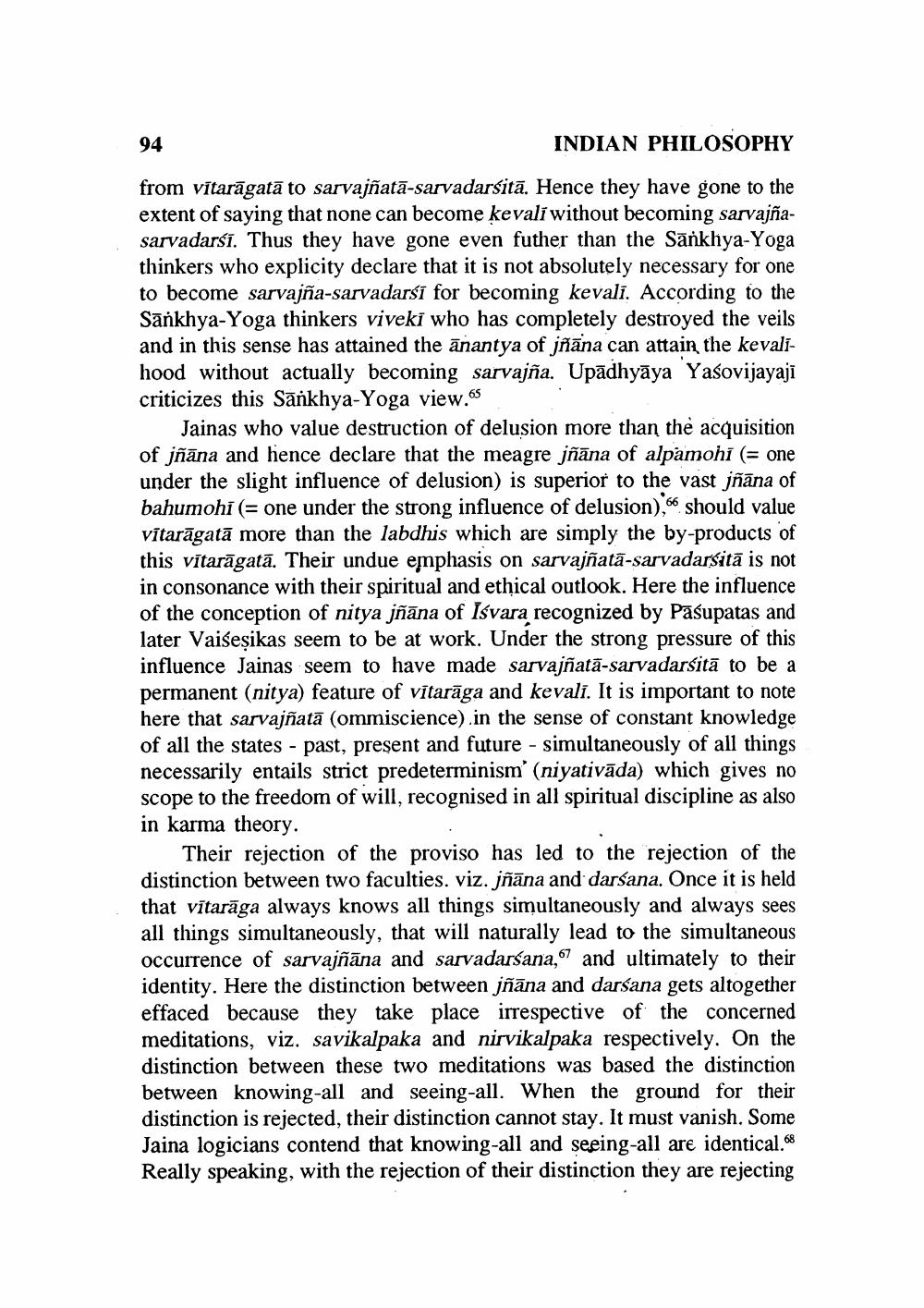________________
94
INDIAN PHILOSOPHY
from vītarāgatā to sarvajñatā-sarvadarsitā. Hence they have gone to the extent of saying that none can become kevali without becoming sarvajñasarvadarsi. Thus they have gone even futher than the Sānkhya-Yoga thinkers who explicity declare that it is not absolutely necessary for one to become sarvajña-sarvadarsi for becoming kevali. According to the Sankhya-Yoga thinkers viveki who has completely destroyed the veils and in this sense has attained the ānantya of jñāna can attain the kevalihood without actually becoming sarvajña. Upādhyāya Yasovijayaji criticizes this Sānkhya-Yoga view.as
Jainas who value destruction of delusion more than the acquisition of jñāna and hence declare that the meagre jñāna of alpamoni (= one under the slight influence of delusion) is superior to the vast jñāna of bahumohi (= one under the strong influence of delusion),66 should value vitarāgatā more than the labdhis which are simply the by-products of this vītarāgatā. Their undue emphasis on sarvajñatā-sarvadarsitā is not in consonance with their spiritual and ethical outlook. Here the influence of the conception of nitya jñāna of īśvara recognized by Pasupatas and later Vaisesikas seem to be at work. Under the strong pressure of this influence Jainas seem to have made sarvajñatā-sarvadarsitā to be a permanent (nitya) feature of vitarāga and kevali. It is important to note here that sarvajñatā (ommiscience) in the sense of constant knowledge of all the states - past, present and future - simultaneously of all things necessarily entails strict predeterminism' (niyativāda) which gives no scope to the freedom of will, recognised in all spiritual discipline as also in karma theory.
Their rejection of the proviso has led to the rejection of the distinction between two faculties. viz. jñāna and darśana. Once it is held that vītarāga always knows all things simultaneously and always sees all things simultaneously, that will naturally lead to the simultaneous occurrence of sarvajñāna and sarvadarśana,67 and ultimately to their identity. Here the distinction between jñāna and darśana gets altogether effaced because they take place irrespective of the concerned meditations, viz. savikalpaka and nirvikalpaka respectively. On the distinction between these two meditations was based the distinction between knowing-all and seeing-all. When the ground for their distinction is rejected, their distinction cannot stay. It must vanish. Some Jaina logicians contend that knowing-all and seeing-all are identical.68 Really speaking, with the rejection of their distinction they are rejecting




